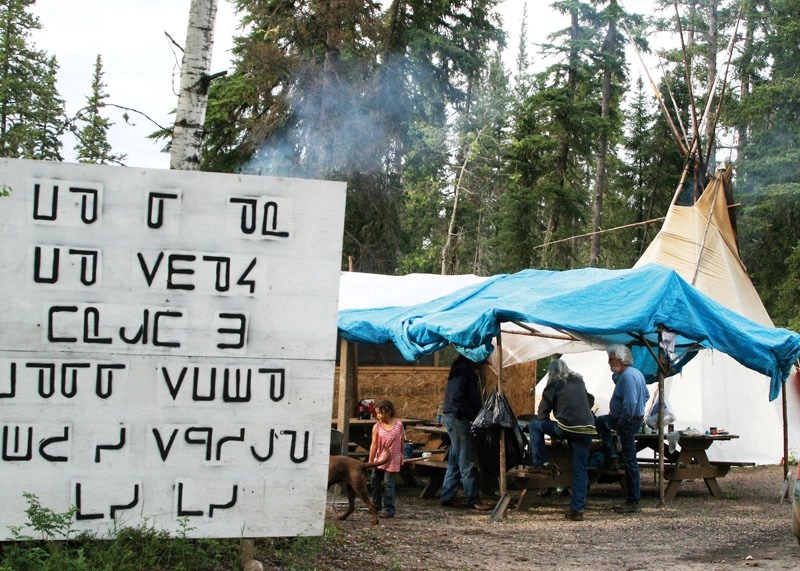An Edmonton provincial court has decided to allow three protesters, two teepees and a sacred fire to remain at the English Bay Peace Camp, where Déné Suliné and Cold Lake First Nations members have been protesting government expansion since May.
Protesters and representatives for the provincial government met in court this past Tuesday after a Court of Queen's Bench judge wanted to give Déné Suliné protesters the chance to explain why they had not left the camp, despite court orders requiring both parties to leave the site.
While the decision was reached, the court discussion and decision have not yet been filed into a written order, explained Marie Iwano, communications director for the government's Aboriginal Relations. However, she expects this to happen within the next week.
Protesters at the camp, including Harvie and Allen Scanie, feel this is a small win for the Déné Suliné people in their fight to stop the government's planned expansion of the English Bay campground.
“It's a victory for the people in a way, because we are allowed to stay out here until June,” said Allen Scanie.
“I think the judge decided in our favour because we are willing to work together and discuss this, but the government is unwilling to budge and the judge can see that. (The government) wants what they want and they don't care what anybody else thinks.”
Protests at the entrance to the English Bay campground on the west side of Cold Lake began on May 6 in response to expansion work being carried out on the site by Alberta Parks, Tourism and Recreation workers.
Both sides appeared in court May 12, where a judicial review of the proposed re-development was adjourned and an injunction was filed, stating the government must stop work, while protesters were ordered to pack up camp and leave the site. Work stopped, but some protesters remained at the camp.
A second court order was filed in June, again requiring protesters to leave. This order was also disobeyed, which led to the court date this past Tuesday.
According to Iwano and Scanie, the three protesters can stay at the camp until next June, when the judicial review of the province's planned expansion will resume in court.
Scanie said the latest court decision prohibits motor vehicle use in the campground, though vehicles with boats can still access the boat launch.
He also said the judge has entrusted protesters remaining at the camp to take care of the land.
“We are the caretakers out here. It is in our own interest to keep the land healthy, so we will protect it.”
Harvie Scanie said he is pleased with the way the latest court decision unfolded, but he is still not satisfied with discussions between the Déné Suliné people and the government, which he feels should be ongoing.
“They are unwilling to sit down and bargain,” he said. “We have to gather and get discussions going. We have to work together.”
Iwano said the government is both “surprised and disappointed” to hear the protesters feel consultations are incomplete.
“We've spent six years ensuring that a lot of planning and consultation happened around this re-development. And they were included in those consultations, along with the larger community.”



